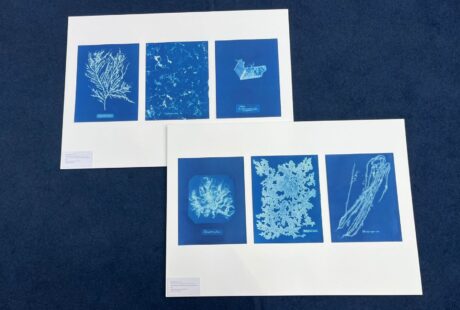A number of conservation NGOs have cautiously welcomed a call by major industry association Cosmetics Europe to its 4,000 members to phase out the use of solid microplastic ingredients in wash-off cosmetic and personal care products.
Following the announcement, Fauna & Flora International, Marine Conservation Society, and Seas At Risk – three NGOs that are working to tackle the problem of microplastic pollution – shared their thoughts on Cosmetics Europe’s recommendations:
While acknowledging its shortcomings, Dan Steadman, Marine Plastics Project Manager at Fauna & Flora International (FFI), welcomed the statement, saying: “Despite limitations regarding the types of microplastics and products considered, we hope that this public recommendation will be an important first step towards the removal of all types of solid microplastic ingredients from all personal care and cosmetic products.”
Laura Foster, Pollution Programme Manager at Marine Conservation Society (MCS), added: “Cosmetics Europe’s recommendation is not broad and ambitious enough but it demonstrates a clear willingness to work towards reducing the amount of plastic litter in the marine environment, and represents a logical step, emphasising the widely available alternatives first, towards an all-encompassing discontinuation of unsustainable solid microplastics in personal care and cosmetic products.”
All three organisations believe that the announcement indicates Cosmetics Europe’s willingness to collaborate with the European authorities and international association partners, helping to pave the way for further discussions and progress in tackling this avoidable source of microplastic pollution.
Emma Priestland, Marine Litter Policy Officer at Seas At Risk, explained that more remains to be done: “Plastic has no place in personal care products, and this is a great first step to tackling this source of pollution, but voluntary agreements with a limited scope are not enough. For the next step, it is vital that we secure European-wide legislation to ensure that all plastic is removed from products that go down the sink and into the ocean.”
A global movement
FFI and MCS have been working constructively and successfully with UK and overseas cosmetics manufacturers and retailers – many of which are members of Cosmetics Europe – for a number of years to encourage them to phase out microplastic ingredients. As such, both organisations say they are pleased to see this kind of proactive involvement by the association, and would welcome the opportunity to collaborate with and support Cosmetics Europe to strengthen and better implement their recommendation in order to level the playing field for all manufacturers of personal care and cosmetic products.
Among the companies that have already pledged to phase out microplastics, there are some that have gone one step further by using broader, more inclusive definitions of microplastic ingredients (without loopholes for unspecified marine biodegradability standards), a wider range of products, and more ambitious timelines within their commitments1. These companies can act as industry leaders – demonstrating best practice that the industry as a whole can learn from.
As well as helping to develop best practice across its membership, Cosmetics Europe is also working to achieve global alignment on the issue. This is very encouraging, especially in light of other positive statements made by trade associations in the US and Canada2, and by CIDESCO, the international standard setter for beauty and spa therapy, which has also issued an appeal to its members to discontinue the use of products containing microplastics.
– Ends –
For more information, high resolution images, or to request an interview, please contact:
Emma Priestland – Marine Litter Policy Officer, Seas At Risk: epriestland[at]seas-at-risk.org / +32 (0) 28930967
Sarah Rakowski – Communications Manager, Fauna & Flora International: sarah.rakowski[at]fauna-flora.org / +44(0)1223 579491
Notes to editors:
- For more information about commitments made by cosmetics manufacturers and retailers to date, visit www.beatthemicrobead.org/en/industry
- In the US, the Personal Care Products Council has voiced its support for federal laws to phase out microplastics. Meanwhile, the Canadian Cosmetic, Toiletry, and Fragrance Association has called for a federal rule that builds upon the industry’s voluntary measures to phase out microplastics.
About Fauna & Flora International (FFI) (www.fauna-flora.org)
FFI protects threatened species and ecosystems worldwide, choosing solutions that are sustainable, based on sound science and take account of human needs. Operating in more than 40 countries worldwide – mainly in the developing world – FFI saves species from extinction and habitats from destruction, while improving the livelihoods of local people. Founded in 1903, FFI is the world’s longest established international conservation body and a registered charity.
About Marine Conservation Society (www.mcsuk.org)
Marine Conservation Society (MCS) is a UK charity dedicated to the protection of our seas, shores and wildlife. MCS campaigns for clean seas and beaches, sustainable fisheries, and protection of marine life. Through education, community involvement and collaboration, MCS raises awareness of the many threats that face our seas and promotes individual, industry and government action to protect the marine environment.
About Seas At Risk (www.seas-at-risk.org)
Seas At Risk (SAR) is a Brussels based international NGO that has been working for over 25 years to promote ambitious policies for marine protection at European and international level. Through EU level advocacy and cooperation with its 28 national member organisations, SAR seeks to protect and restore the European marine environment.
Posted on: 28 October 2015



